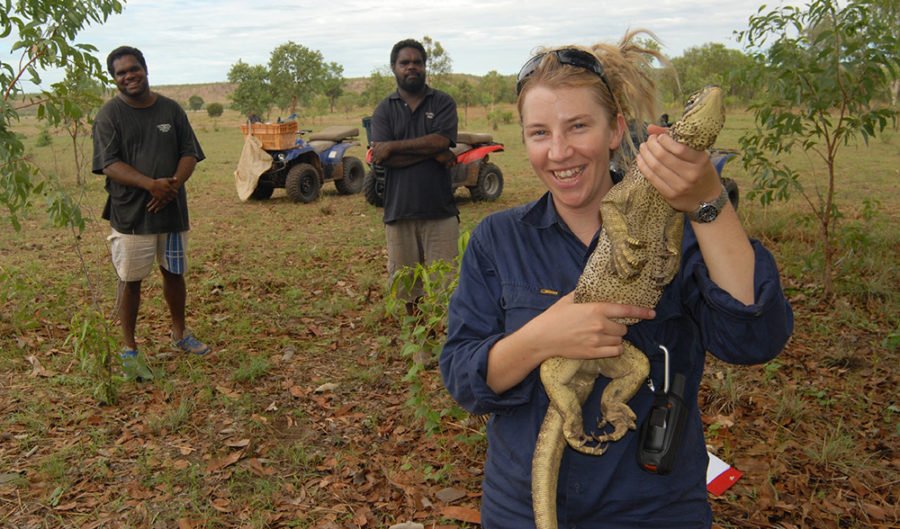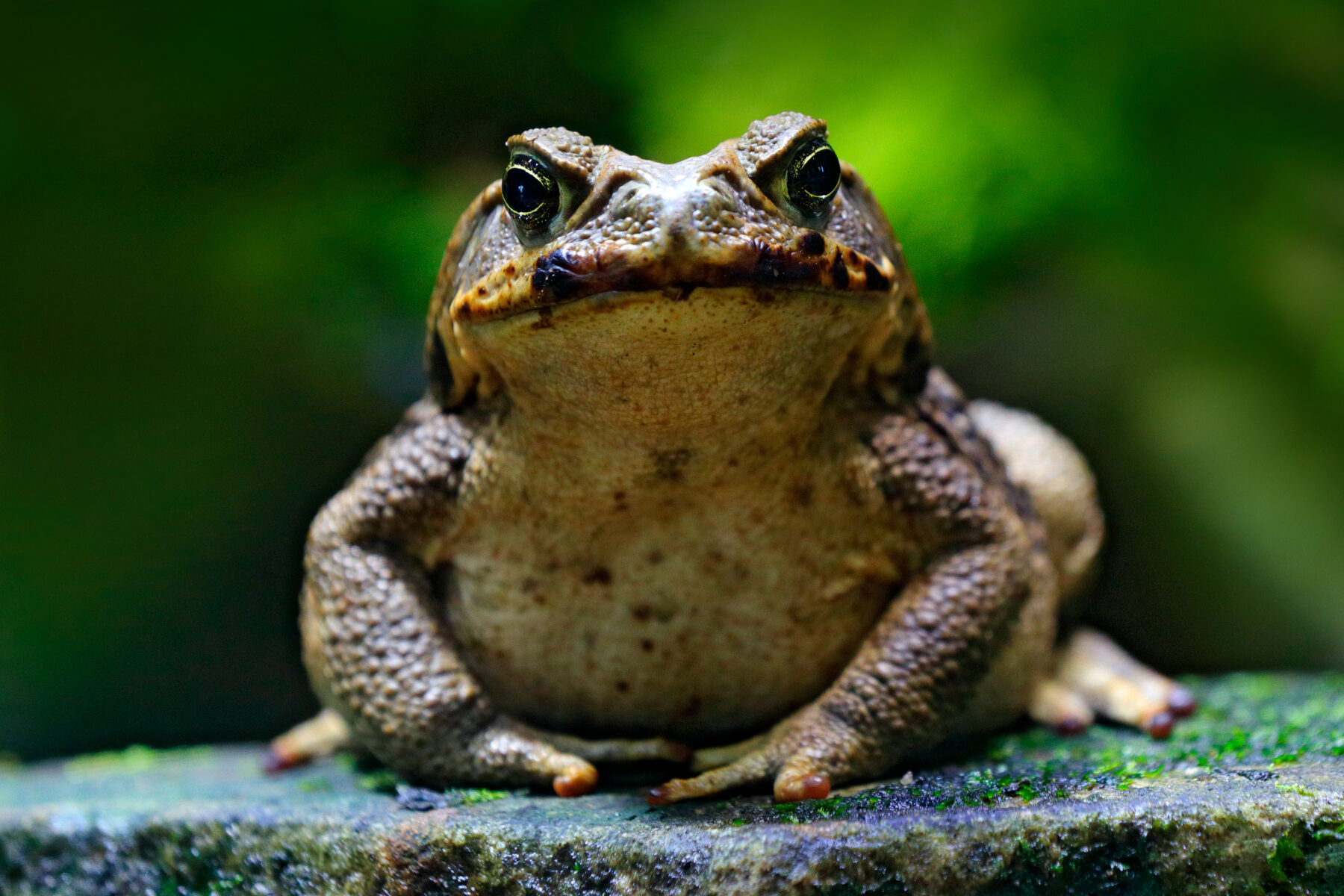Baby cane toads to teach goannas important lesson

In remote Kimberley floodplains, researchers plan to release baby cane toads into the wild to train goannas not to eat larger, poisonous cane toads that are threatening their population.
Smaller cane toads, while not deadly, do make the reptiles sick and the researchers have found that after a goanna has eaten just one baby toad, it will avoid the poisonous adults and live longer.
The plan is to release the babies on a wider scale, before an inevitable invasion of adult cane toads – but public perception has to be on their side first.
Thinking laterally
After a lot of time and money spent on cane toad eradication and control methods, the time has come for novel ideas and lateral thinking, said Georgia Ward-Fear, a PhD candidate at the University of Sydney who led the research.
“[Cane toads] are here to stay and time is definitely running out for our native fauna ahead of the invasion front, so we really have nothing to lose by trying these innovative conservation techniques,” she said.
The scientists offered free-ranging goannas small cane toads on a fishing pole to simulate a real life experience. The results, published in Biology Letters this month, showed that while ‘untrained’ goannas survived a maximum of 183 days, those that had tasted the baby cane toads lived up to 500 days.

Conservation possibilities
The team has been studying the floodplain site in the North Eastern Kimberley, WA, for three years. They hope to try a targeted release at the beginning of a Wet season so the baby cane toads will be stuck in waterbodies.
Georgia said that the baby cane toads will not start breeding until after the adult cane toads have arrived and begun breeding themselves. She added that the researchers will also need to predict when the cane toad invasion will arrive, so the goannas can be trained before they encounter their first adult toad.
“The process of release would need to be measured and strategic, but anyone who has lived through the cane toad invasion would understand that there is no battle against the cane toad invasion,” she said.
The research was a collaboration between the University of Sydney, the WA Department of Parks and Wildlife and the traditional owners of the North Eastern Kimberley, the Balanggarra people. The reseachers say they will be working closely with the region’s existing land management and conservation network, as well as Indigenous ranger programs and community groups.

